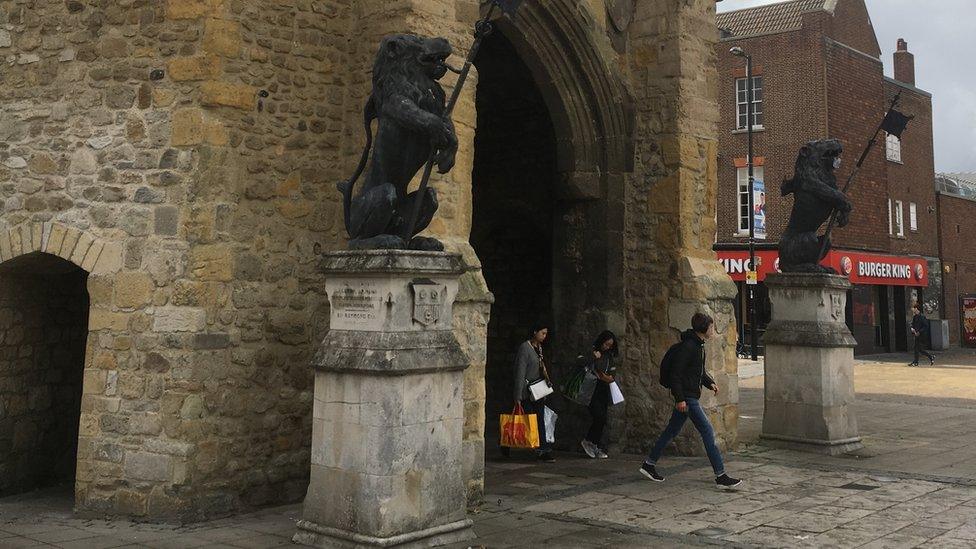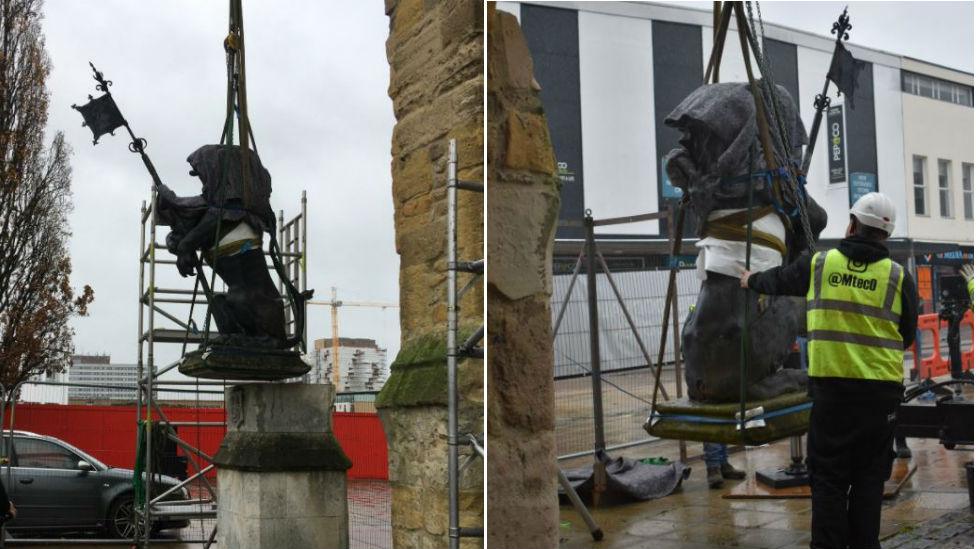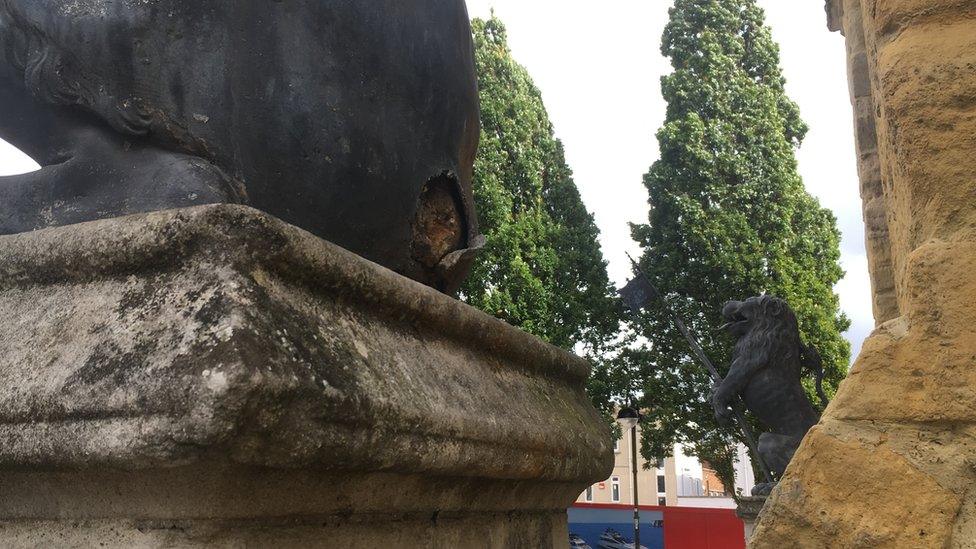Southampton Bargate lions removed for repairs after 275 years
- Published

The lions have stood alongside the Bargate, the main entrance to Southampton in the old town walls, for 275 years
Two iron lions guarding the ancient walled entrance to Southampton have been removed for repairs for the first time in 275 years.
The lions, one of which lost its tail in 2018, have stood alongside the Bargate since the mid-18th Century.
They are understood to represent the legend of Sir Bevois who is said to have founded the city.
Southampton City Council said the work, which includes reattaching the tail, would take four months.

The repairs are expected to take four months to complete
"After 275 years, the lions have developed several cracks caused by the ironwork inside them expanding due to natural corrosion, and other damage caused by someone climbing on them," the authority said.
The work will also involve replacing internal iron work with a stainless steel frame, repairing cracks, and analysing the layers of paint "to restore the lion to their original finish", it added.
The lions are thought to have been made by the London sculptor John Cheere and replaced wooden lions that had stood guard since Tudor times.

The tail of one of the lions dropped off two years ago due to corrosion

The legend of Sir Bevois
The medieval chronicles of mythical Sir Bevois were told by minstrels and storytellers across Russia and Europe.
They tell of his adventures and heroic deeds accompanied by his giant page and squire, Ascupart, armed with a magic sword, Mortglay, and a magical horse, Hirondelle.
They include him being sold to slave merchants by his mother, ending up in the court of the king of Armenia and falling in love with a Muslim princess, Josian.
The Bargate statues are said to commemorate the slaughter of two lions by Sir Bevois to protect the princess.
He reputedly returned to England to reclaim his father's land, on which he founded Southampton.
A number of districts in the city bear his name.

- Published24 November 2017

- Published16 August 2010